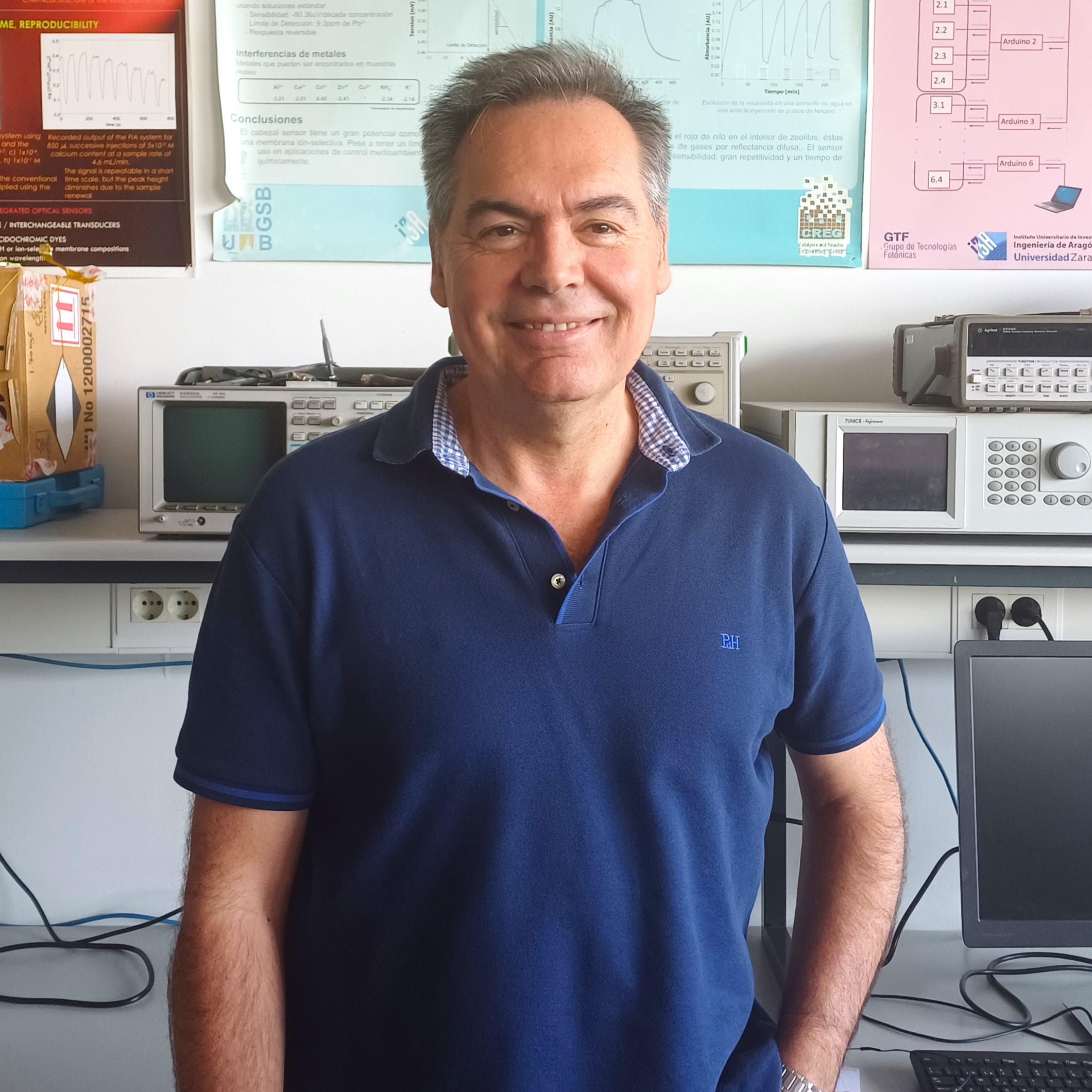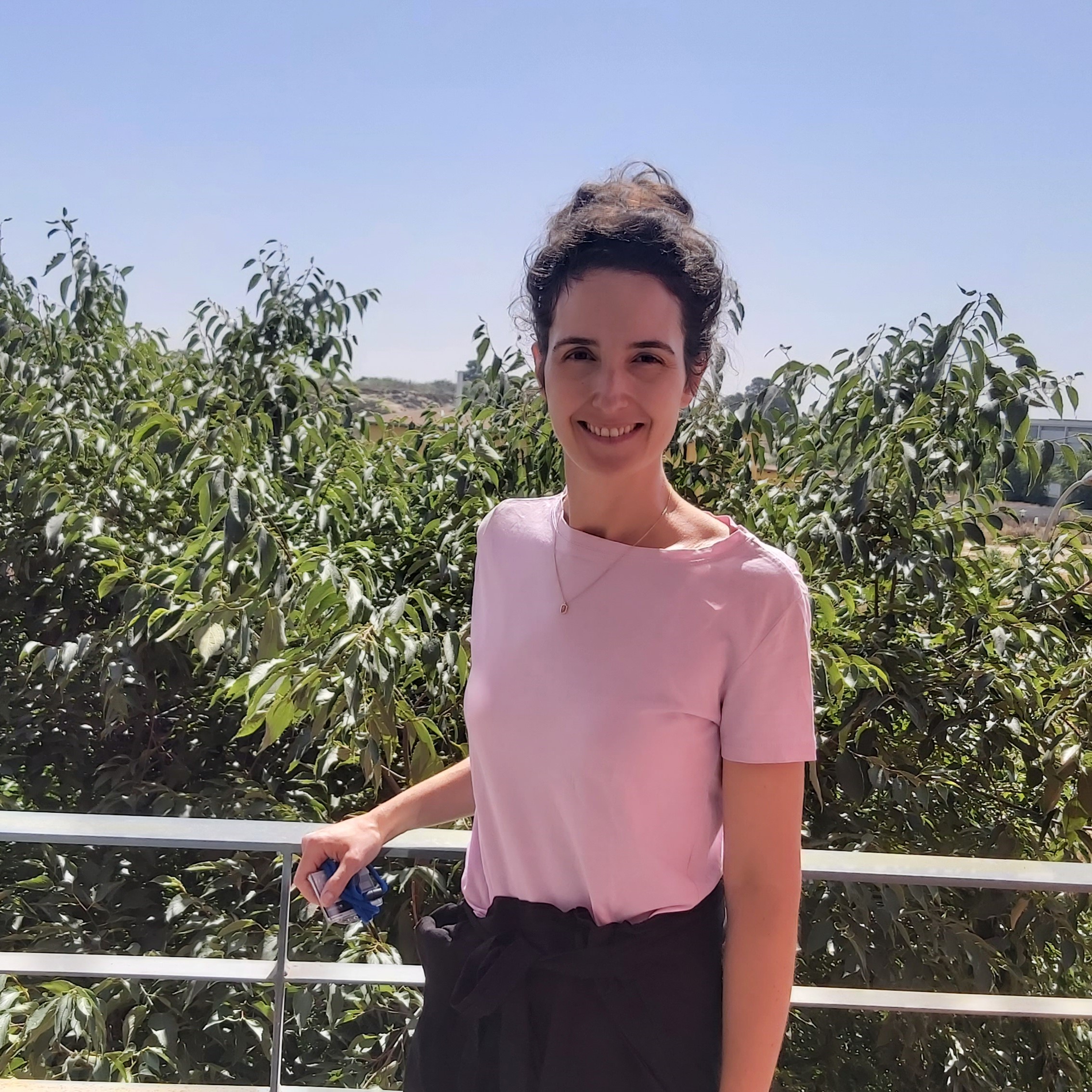
Why did you decide to go into research
Actually, when I finished my degree I worked in the company. My first idea was not to dedicate myself to academic research, but the positions I held in the company were related to R&D and it was something I liked. I had the opportunity to enter the University as a professor in 1993, in Telecommunications Engineering. From then on, I developed my career, but not only in research, but also in teaching and later in management. Research is a very important part of my professional life, but not the only one.
Was it always clear to you what you wanted to do for a living?
No, at the beginning my idea was to work in the company and I didn't want to know much about the university. However, life circumstances eventually led me here and, obviously, research is fundamental to being a university professor.
Why did you choose the Industrial Technologies research line?
When I finished my degree, the whole fibre optic technology was growing. The first fibre optic systems were being installed and it was something that seemed very interesting to me on a technological and scientific level. I chose to dedicate myself to subjects related to Photonics and, particularly, to everything related to fibre optic communications, also because I was teaching in Telecommunications Engineering. Photonics is a cross-cutting area that is widely used in all industrial sectors. The GTF group, to which I belong, works on topics more related to industrial technologies, but my research is closer to ICT.
How long have you been associated with the I3A and what would you highlight about the Institute?
I have been associated with the I3A since its inception. Apart from being a researcher, I was director of the Institute for eight years. What I would highlight about the I3A is the dual aspect of scientific excellence in many groups and researchers, but at the same time a strong component of technology transfer, which has a very important impact on our society. Knowledge transfer combines very well with scientific excellence and helps a lot with interdisciplinarity and collaboration in our research. In addition, I always find that most of the people at the I3A are very collaborative and this makes the management of the Institute very easy.
In your research group, what are your main lines or areas of work?
The Photonic Technologies Group has three main lines, optical fibres and communications, multilayer optical coatings, which is mainly developed in the Faculty of Science where we have a very important unique facility, and the last one, industrial optical and optoelectronic sensors, systems and instruments, where we work a lot with industry.
Is there a project that you are particularly proud of for its impact on society or academia?
Of all the projects I have worked on throughout my life, I would highlight the project to develop the BOSA (Brillouin Optical Spectrum Analyzer), a very high resolution optical spectrum analyser, whose technique was discovered by several members of the group. It is very interesting because, in collaboration with a company in the region, a high-tech equipment was developed which is now marketed all over the world and is in many high-tech laboratories of companies and universities. It is something that, in my opinion, has had a strong impact and I am proud to have been part of the team that helped create a high-tech commercial product from an idea.
Any ongoing projects you would like to highlight
We are working on a proof-of-concept project in which we want to develop and increase the TRL (Technology Readiness Levels) of integrated photonic circuits based on silicon technology. What we are looking to do with these devices is to develop optical receivers for optical communications, but to do it in a way that they are not assembled in a lab from a bunch of devices, but that they are all integrated into one integrated circuit based on photonic waveguides. In addition, we are working to bring what we are doing closer to the market, so that they are more easily marketable. In our group, we not only like to work on the basic science, but also on the application of that science and transferring it to companies.
How do you envisage the future of your research area, and are there any challenges that seem particularly interesting or important to you?
In terms of optical communications, we are immersed in a virtuous circle, in which there is a continuous need for more transmission rate, more bandwidth, more bits to reach the devices. With all that bandwidth, new applications are developed to exploit it, and when the number of users increases, a new need for bandwidth is generated. At the moment, there is no end in sight to this continuous increase in network capacity, and our job is to develop network technologies that support this increase.
And this is accelerating, especially with the development of data centres and the deployment of 5G and 6G networks. All these mobile communications systems are being integrated with fibre optic communication systems. The future is going in that direction. The challenge is going to be to send more information more quickly between different servers.
What do you enjoy most about your profession and what do you enjoy least?
What I enjoy most is that I don't just focus on one thing, I have multiple aspects to focus on. I am not only involved in research but also in teaching and management. For a curious person like me, working on many different things is very enriching. Although, precisely because of this, I often cannot go as deeply into some subjects as I would like to.
For me, the most negative part is the bureaucracy, but not the bureaucracy itself. I understand that when you advance in your career, it ends up being a part of the job, but I have the feeling that the bureaucracy is not well thought out and that things could be done much more efficiently so as not to waste so much time.
What would you say to anyone thinking of going into research?
First, it is a very beautiful, very interesting and intellectually very attractive career, but on the other hand, it has its drawbacks. If you dedicate yourself to research, you have to take into account that you will probably have to move from your place of origin for a period of time and, possibly, you will have job instability for some time. This does not necessarily have to be a negative thing, but you have to be aware of it beforehand and not think too much about what is going to happen in the future. I would also like to tell you to be aware that not everything has to end up in academia and that there are possibilities for research work in the private sector as well.
CLOSE UP...
What did you study: Physical Sciences
A dream to fulfil: to make a big exhibition with my photographs.
What do you do in your spare time: I read, watch series and spend a lot of time editing the photos I have taken.
A book: The Name of the Rose, Umberto Eco
A film: Casablanca
A series: True Detective, Chernobyl, Twin Peaks...
Favourite band or singer: There are many... from my youth AC/DC or The Smiths.
A trip: Japan
How would you define yourself: I am a curious person who loves to learn about everything and also to be with my family.
